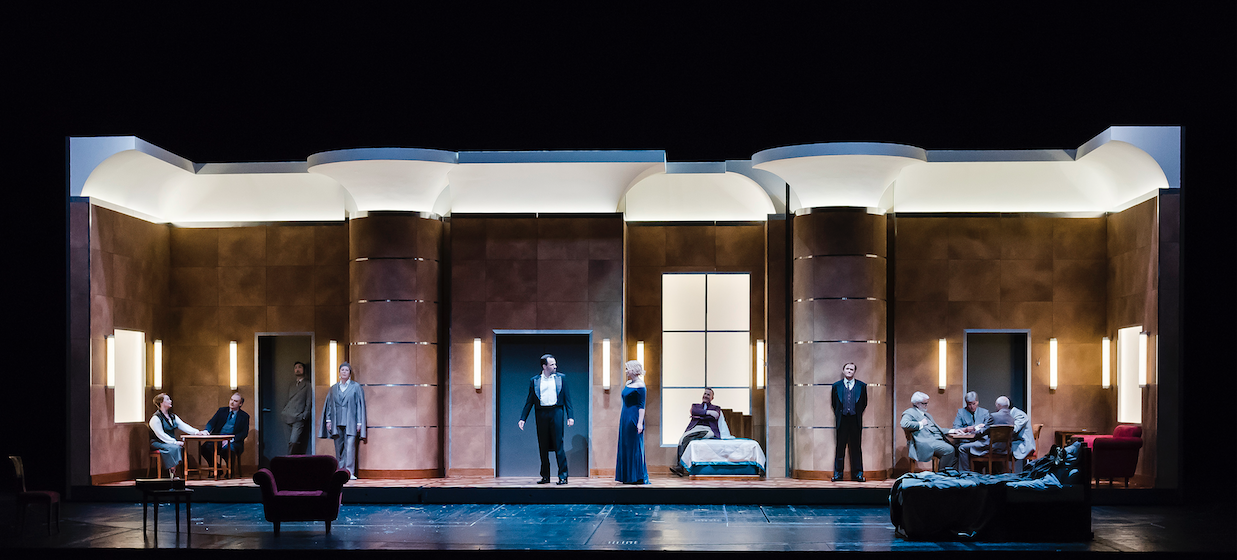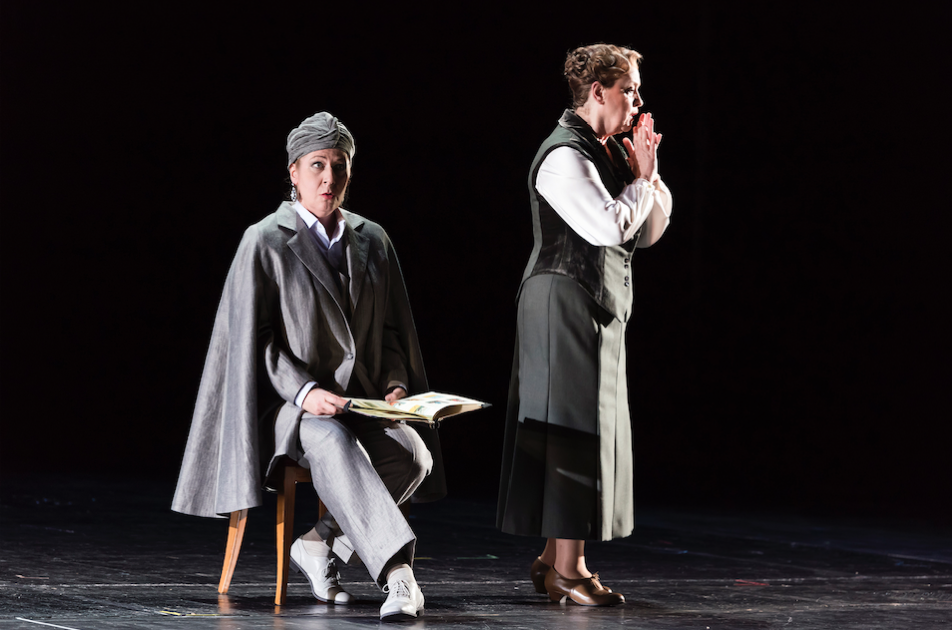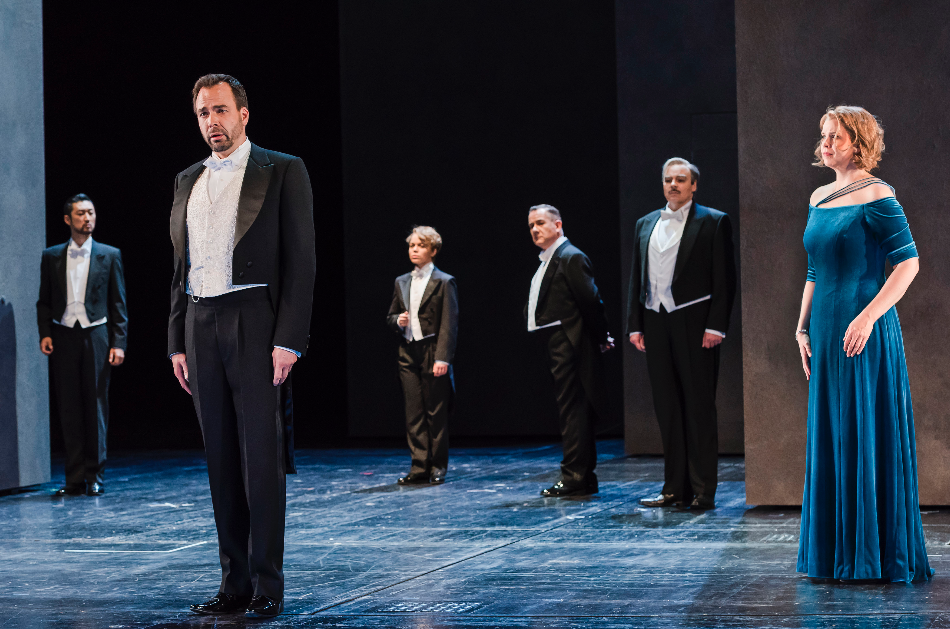A very necessary ambiguity

Arabella was born in ambiguity, in very many senses.
It was conceived in an uneasy collaboration between Richard Strauss and his longtime librettist, the Austrian poet and philosopher Hugo von Hofmannsthal. Unhappy with the panning of their previous opera (Die ägyptische Helena) by the press because of the heavy symbolism of its libretto, Strauss wanted Arabella to be ‘a second (Der) Rosenkavalier‘, which had been their most successful collaboration to date. Strauss drafted Arabella to be, likewise, a light romantic comedy set in Vienna, and sent it to von Hofmannsthal for his revision. As it turned out, von Hofmannsthal died suddenly, days after getting the draft; the shock of his death did not allow Strauss to return to the opera until three years later, when he set the unrevised draft to music. We will thus never know if the many ambiguities in Strauss’s draft were intentional or accidental, and whether von Hofmannsthal’s interventions would have added some much-needed gestalt to the plot.
The opera’s beautiful heroine, Arabella, is also fraught with ambiguity. While being a rather wilful and slightly ruthless young woman, at least in the context of her admirers, she is also oddly loyal to her dysfunctional parents, who have decided to ‘sell’ her to the highest bidder for her hand in marriage. Her self-seeking parents – a Count who has lost all his money to gambling, and a Countess who seems obsessed by the occult when she isn’t talking money – have also decided to condemn their more tomboyish younger daughter, Zdenka, to life as a male, since they cannot afford to marry off two daughters well. This leads to Zdenka’s sexual ambivalence: madly in love with the penniless Matteo, she forges a ‘brotherly’ relationship with him and sends him love letters in Arabella’s name, just to enjoy his proximity. Arabella in her turn is dismissive of Matteo, and indifferent to her three acknowledged suitors, whom she nevertheless keeps dangling on a string. She is, however, a romantic at heart, believing there is a ‘right one’ for her, as expressed in a moving aria with Zdenka, ‘Aber der Richtige‘.






Enter the rescuer in the shape of Mandryka, who is a conveniently rich, young and handsome Croatian nobleman. Equally conveniently, he is the nephew, and heir to the fortunes, of a rich old count (now conveniently dead) whom Arabella’s father had contacted as a prospective groom for his daughter; happily for everyone concerned, the younger Mandryka had fallen in love with his uncle’s picture of Arabella, has come to ask for her hand in marriage, and – perhaps most importantly for Arabella’s father – is predisposed to put his money where his suit is. Curiously, for someone who has played so hard to get with so many for so long, Arabella immediately falls in love with Mandryka, declaring him to be ‘the right one’; since her parents are already in love with his money, this allows a marriage of financial convenience to take on the spin of love. Even more unconvincingly, though, our hitherto strong-minded and untameable heroine agrees not just to love and honour, but also to ‘obey’ the masterful and self-confessedly ‘rustic’ Mandryka: this declaration is however redeemed by its being one of the most beautiful arias in the opera, ‘und du wirst mein Gebieter sein‘.
Arabella asks only that Mandryka allows her her ‘hind’ night, in the company of her (now displaced) suitors at a ball, before she becomes formally engaged to him: strangely, for someone so possessive and, as it turns out, regressive, he readily agrees.




This turns out to be a fertile source of the contretemps needed for a full-length opera. The comedy of errors begins with Zdenka (in her male avatar, Zdenko) organising a night of love for Matteo with Arabella, whom she of course plans to replace in bed. Mandryka’s insane jealousy when he comes to know of this leads to him flirting outrageously and publicly with the Fiakermilli (the mascot of the ball), much to the distress of Arabella’s parents, who implore him to clear things up with her. Meanwhile, Arabella returns to her rooms after a chaste night out, only to find, much to her disgust, an amorous and sated Matteo emerging from her bed, Zdenka having left in the dark. Matteo is, in his turn, equally annoyed to find the woman he thought he’d just made love to pretending not to acknowledge any of this. When Mandryka arrives with the whole party in tow to find the two together, his bull-in-a-china-shop rants become even worse; until Zdenko arrives and dramatically reveals that s/he is Zdenka, that she was Matteo’s bedfellow, and that she is prepared to kill herself for unrequited love. Of course it will never come to that, since as expected, Matteo falls suddenly and conveniently in love with Zdenka. All that now remains is for Arabella to forgive a penitent Mandryka for his machismo and boorishness, which she does with an alacrity that is as unseasonable as it is unreasonable, in one of Strauss’s most moving arias, ‘Das was sehr gut, Mandryka’.









Given the strange mismatch between the unconvincing plot and the exquisite music, a director has two options: either to be literal-minded and risk overall shallowness, or to provide a complex subtext with which the depth of the music can more easily be reconciled. This production is greatly to be commended for choosing the second option, via its suggestive dramatisation. Arabella’s dominatrix-like riding of her suitor Elmer, or the almost over-the-top savagery of Mandryka’s flirtation with the Fiakermilli, cast in doubt any cloying happily-ever-after scenarios for the lead couple, by bringing out the darker sides of their sexual personalities. The immensely thought-provoking last scene with a reconciled Arabella and Mandryka in the foreground emphasised this open-endedness. The fortune- teller looks into the future, with Arabella’s mother fixated on her; Arabella’s father is back to his big bad gambling ways; one of Arabella’s suitors looks wistfully into the distance; the marital bed lies rumpled in the foreground; and a smiling man looks at the two lovers from a bed just behind them. Was this to convey that there really would be no happily ever after? That the fortune-teller, who had correctly predicted Arabella’s marriage, was looking ahead, but not telling? That this sudden, and rather convenient marriage, rocked by Mandryka’s real, and Arabella’s supposed, infidelities at the outset, would founder because of a third man, yet to come into their lives? That the echoes of Arabella’s completely dysfunctional family would eventually catch up with her in her own marriage?

The inventive use of the sets added to this ambiguity, with the same props taking on different lives in different scenes. The costumes were handled with intelligence, their drabness in the first half setting off the brilliance of the ball attire – Arabella’s deep blue gown was particularly memorable. The Gewandhaus Orchestra and Chorus were flawless as ever, under the baton of Ulf Schirmer. Among the minor parts, Zdenka (Olena Tokar) and the Fiakermilli (Jasmina Sakr) both performed with brio, despite being a bit wobbly in the higher registers.Tuomas Pursio’s Mandryka had a Nordic masculinity that was entirely appropriate; but it was really Betsy Horne’s Arabella who stole the show, and the audience’s hearts, with her dramatic flair and stellar singing.
In all, an operatic production that was more than just splendidly staged and sung; by raising more questions than it answered, it brought to the fore a very necessary ambiguity.






